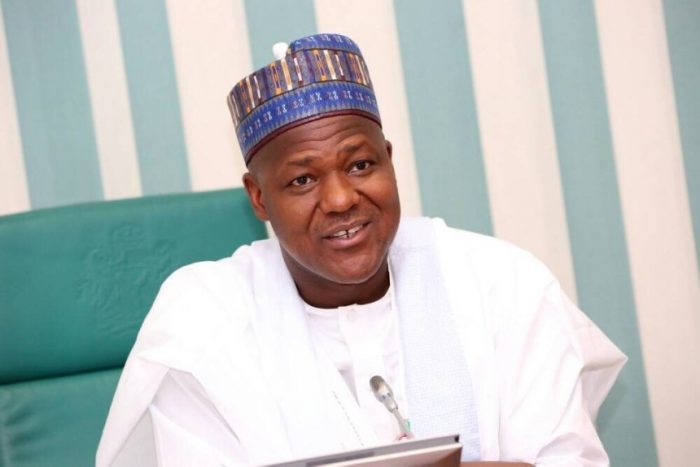Former Speaker of the House of Representatives, Yakubu Dogara, on Tuesday, warned that the escalating insecurity and poverty in northern Nigeria have become so dire that they must now be treated as a national emergency rather than a regional concern.
The former Speaker said the magnitude of killings in the North had spiritual implications, describing it as a “curse” that has crippled development.
Dogara disclosed this in Abuja, during a panel session at the Nigeria Investment and Industrialisation Summit (NNIIS) 2025, organised by the Northern Elders Forum (NEF). He lamented the worsening bloodshed across the region.
He said, “With the kind of bloodletting we are witnessing in the North, if you are a person of faith, you will know that we are operating under a curse because it is human blood.
“The effect of a curse is that you sweat without results. That is why we are sweating in this part of the country without any tangible outcome.”
Dogara insisted that security must be the top priority before any meaningful development could occur, urging governors in the 19 northern states to pool resources to combat the menace.
He added, “If it will mean pulling all the 19 northern states’ resources together to tackle insecurity, we must do it. Otherwise, all our conversations here will amount to nothing.
“We need to depart from doing business as usual and embrace radical, transformative action. Help is not coming from anywhere, we must take our destiny into our own hands.”
He argued that without the development of the region’s vast population, Nigeria’s overall progress would remain stalled.
In his remarks, Former Senate President Bukola Saraki disagreed with Dogara’s prescription, arguing that the crisis required a holistic national strategy involving both government and private sector actor.
Saraki noted that some governors were already taking innovative steps, citing Nasarawa and Zamfara states as examples.
He said: “We shouldn’t think it’s easy to put all the blame on governors. Even if you put a super governor in those states today, you won’t see investments unless there are incentives.”
He stressed the need for a structured national development plan that clearly defines the roles of all stakeholders, including state governments, the private sector, and the federal government.
Also speaking, a member of the House of Representatives, Bello El-Rufai, said the North’s youth population, often hailed as its greatest asset, was increasingly becoming a liability due to banditry and cybercrime.
He said: “The most that get recruited by bandits are young people. The young people doing cybercrimes are also within our group.”
El-Rufai added that while more young people were now being appointed into public positions, the focus must shift to building a culture of respect, mentorship, innovation, and service among the youth.
Summarising proceedings, Prof. Doknan Sheni, Director-General of NEF, said the forum adopted a ten-year development plan (2025–2035) designed to reduce poverty, curb insecurity, and create jobs.
He said that the event opened with inclusive measures such as interpreters, live-streaming channels, and safety guidance for participants.
He noted that deliberations focused on four themes: Power – bridging energy deficits through decentralisation and partnerships.; Agriculture – shifting from subsistence to agro-industrial transformation; Digital Economy & Innovation – leveraging technology to unlock growth; Mining – promoting inclusive and sustainable exploitation of mineral resources.
Prof. Sheni noted that the high point of the summit was the signing and adoption of the Northern Nigeria Integrated Economic Development Charter, now positioned as the guiding instrument for collective action to drive transformation in the region.
He said that the region must move beyond rhetoric into bold, coordinated action if it is to fulfil its role as the economic engine of Nigeria.
He said: “The high point of the summit was the formal signing and adoption of the Northern Nigeria Integrated Economic Development Charter. This document, endorsed by regional leaders and stakeholders, is now positioned as the central instrument to guide collective action in driving economic growth and transformation in Northern Nigeria.
“The proceedings closed with assurances of faithfulness, commitment, and competitiveness in implementing the resolutions, backed by infrastructure development, power generation initiatives, and inclusive community participation. The overall message was clear: moving beyond rhetoric into bold, coordinated action is essential if the region is to fulfil its role as the economic engine of the nation.”
“Several presentations underlined the challenges and opportunities in agriculture, mining, infrastructure, power, and digital economy. It was agreed that synergy between public and private sectors is vital for building an enabling environment, attracting investors, and ensuring security.
“Discussions also highlighted the importance of transparency, streamlined approvals, policy reforms, and youth empowerment in advancing economic transformation.”

